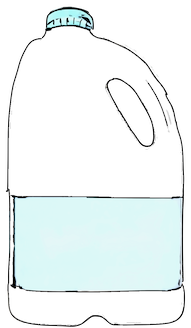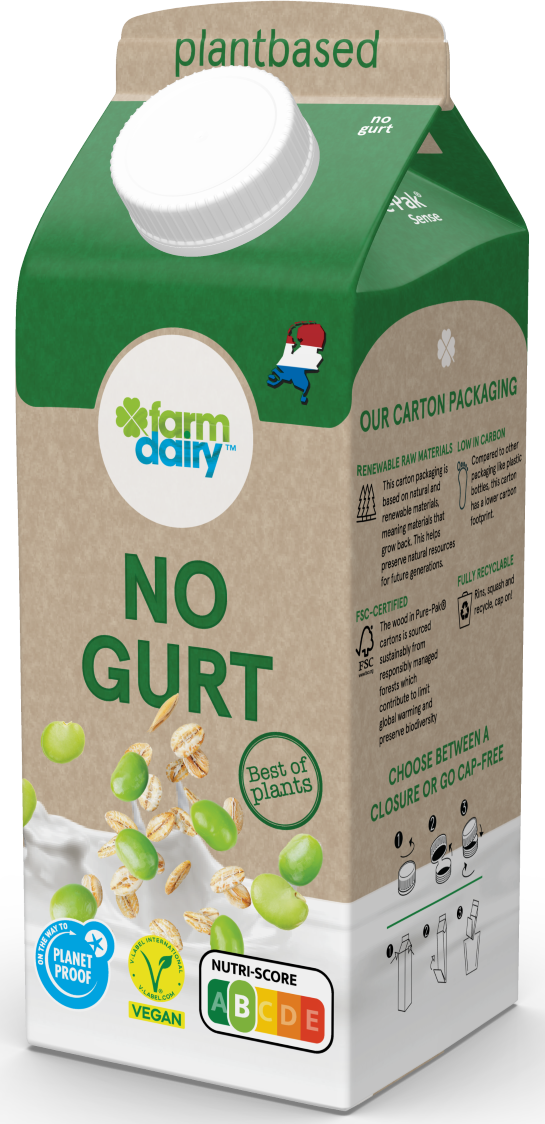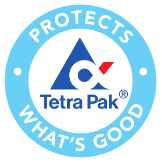Different products and usage requirements call for different packaging types and content variants. Ranging from 750ml packs for fresh vegetable yogurt, for example, to 2 liter milk cans and 1 liter 'briks' for longlife drinks. Together with our customers and suppliers, we are constantly looking at how we can optimize our packaging.

We produce our lightweight 2 liter containers entirely in-house from granulated polyethylene (PE), thus avoiding transport of empty containers (=air).
We fill them directly if possible and provide them with a PE cap and PE stretch sleeve or cold washable label. This makes them very recyclable (according to the KIDV recycle check).
In the future, we want to use this recyclate in our new cans. However, at the moment it is not yet legal to use PE recyclate in food packaging. We are working with various parties to make this possible in the future through better waste separation, sorting and cleaning.

Illustrative example
For our fresh dairy and plantbased dairy alternatives, we have chosen Elopak's Pure-Pak® Sense beverage cartons. These beverage cartons consist of 75% paper, derived from fiber from sustainably managed forestry, according to the most stringent standards (FSC). To make the paper liquid-proof, a thin layer of plastic is added to the inside and outside.
Elopak uses renewable raw materials, which can grow back in natural processes such as trees and plants. For the plastic part, for example, they offer biocircular polymers produced from biological waste. This prevents the use of fossil raw materials and ensures CO2 reduction. Due to the large share of renewable raw materials, the CO2 footprint of beverage cartons is low.
Beverage cartons can be recycled. The strong paper fiber can be repurposed for the production of cardboard boxes, paper bags and hygiene paper. The polymers and aluminum are repurposed for the production of transport pallets, crates and interior applications.
For our long-life dairy and plant based dairy alternatives, we have chosen Tetra Brik® Aseptic Edge packs from Tetra Pak®. The "hero" format with its distinctive, recognizable slanted shape. These packs consist of approximately 70% cardboard, sourced from FSC® certified forests or other controlled sources. To make the paper waterproof, a thin layer of polymer is added to the inside and outside. A layer of aluminum ensures the long shelf life.
The plant based version consists of more than 75% renewable material: raw materials that can grow back in natural processes such as trees and plants. The polymer in the plant based carton packaging is made from sugar cane. This makes the CO2 footprint smaller than that of the standard version. This polymer from sugar cane that comes from Braskem is fully traceable and Bonsucro certified, which guarantees that this sugar cane does not compete with food production.
During the recycling process, the paper is separated and used for such things as boxes and tissues. The remaining polymer and aluminum, together called PolyAl, is used in such things as pallets, crates and street furniture.
Illustrative example
